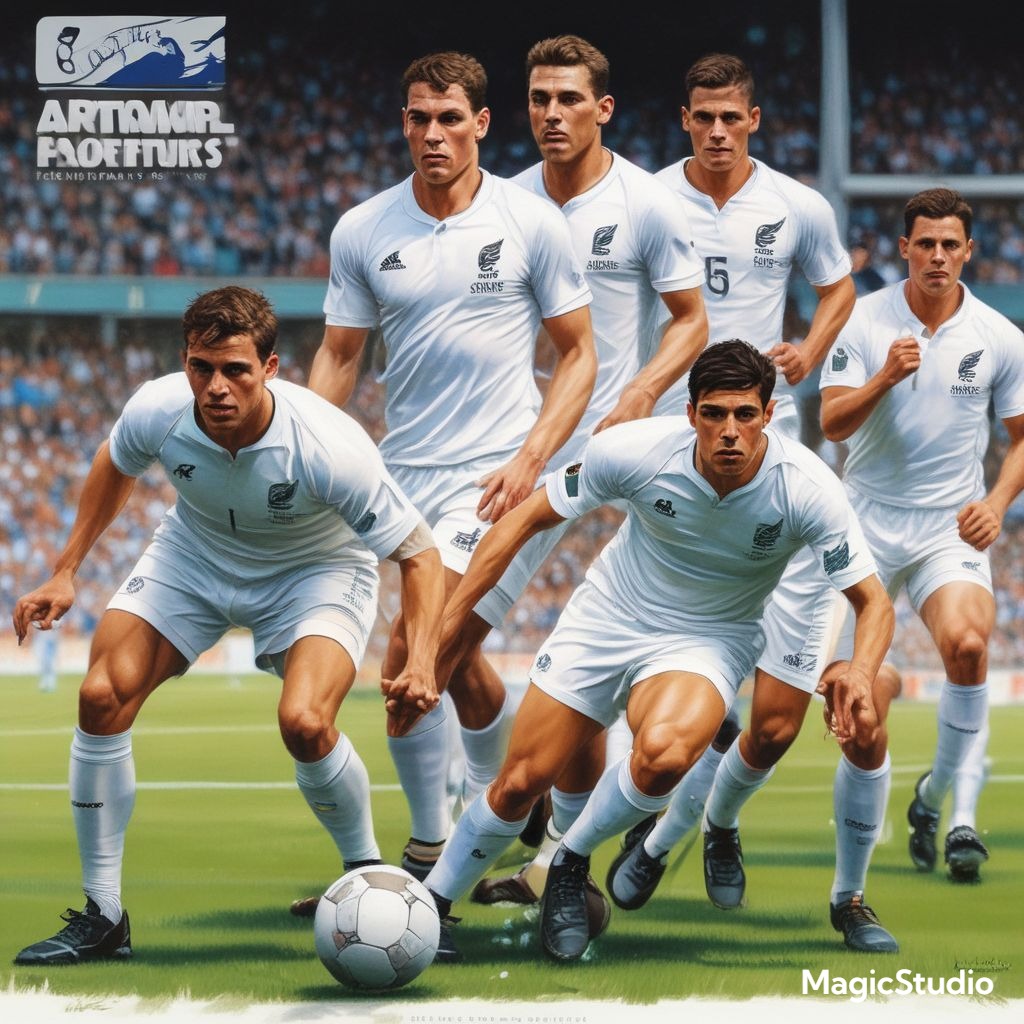The All Whites represent New Zealand’s national football, and to the country’s sporting life, it is something significant. Although rugby is the sport conducted most predominantly in New Zealand, the football team has a name on the world level of football, showing resilience, passion, and steady development. Their “All Whites” naming can be distinguished from their rugby counterparts within the New Zealand national squad, known as “All Blacks,” and represents their traditionally white kit, which is different in New Zealand sporting culture.
This article provides information regarding the history, triumphs, and difficulties the All Whites entail in respect to their future. Their humble beginning from there to their spectacular moments in the international stage, we will take on our task to get to the heart of the matter when it comes to the reasons why the All Whites are an integral part of New Zealand’s sporting heritage.
Earliest History of the All Whites
The national New Zealand football team was first established in 1922, when their first ever international match was against Australia the same year. The early years of New Zealand football, however, were relatively humble because football sport was relatively slow to catch on in comparison with rugby. Football was a sport most commonly played by expatriates from Europe and had yet to gain much depth with the greater New Zealand population.
Regional competitions were the order of the day during the early years of the All Whites with games played against other Oceania teams, mainly Australia. The rivalry was part of their identity since the games with Australia were always very competitive .
Breakthrough: 1982 FIFA World Cup
The most memorable juncture in the history of the All Whites probably came in 1982, when the nation qualified for the World Cup for the first time. In a great leap forward for New Zealand football, this catapulted the nation onto the world map of the sport. It wasn’t an easy journey, however; the All Whites had to move around from place to place and endure difficult opponents.
The qualification campaign was unprecedented: 15 matches played All Whites on the road across Asia and the Middle East to gain qualification for the World Cup. Determination and grit personified in form by stalwarts such as Steve Sumner and Wynton Rufer, would make both players legends of New Zealand football, as qualification propelled the game from obscurity into national consciousness.
New Zealand played some of the best teams in the world back in the 1982 World Cup, of course against Brazil, Scotland, and the Soviet Union. Despite not winning any game it was playing at the international level and so much learned from this. The All Whites proved to themselves and the rest of the world that New Zealand belongs in any competitive level of international football.
The Pathway to the 2010 FIFA World Cup
The All Whites never stepped out of those shadows after the 1982 World Cup. New Zealand football remained dominated by rugby as it struggled to find its way amidst qualification campaigns for successive World Cups, and challenges mounted. But the trend slowly began to shift during the first decade of the 2000s.
The NZFC, established in 2004, also assisted in institutionalizing the nurturing of indigenous football talent. Heroes like Ryan Nelsen, Chris Wood, and Shane Smeltz emerged and featured so well for the national side indeed.
Once again, the All Whites qualified for the World Cup tournament in 2009 by qualifying for the 2010 FIFA World Cup in South Africa. The team was more determined than ever to make this a bigger tourney this time around. Their qualification campaign would be marred by a dramatic playoff victory over Bahrain, as Rory Fallon’s header and Mark Paston’s penalty save sealed the deal for their spot in the tourney.

The 2010 World Cup: Unbeaten and Proud
The 2010 FIFA World Cup is one of the most memorable events in New Zealand football. The All Whites were placed into a group, Italy, Paraguay, and Slovakia. Apprehensions of a potential exit were high. However, this team was able to go beyond all that was expected.
The All Whites finally got their first point after 90 minutes of play in a World Cup match against Slovakia, with Winston Reid equalizing in the last minute to level the score at 1-1. It was followed by another unbelievable result in a 1-1 draw with the world champions, Italy – the defending champions. Shane Smeltz shocked the Azzurri in the very beginning of the match with a goal, and the All Whites survived for the first time in history.
Their final group stage match against Paraguay ended in a 0-0 draw, so New Zealand exited the tournament unbeaten. While they did not make the knockout phase of the tournament, three draws against heavy weights ensured that they received much appreciation and praise.
What the All Whites had accomplished was amazing – they had completed an entire World Cup without losing a game.
9 Challenges and Future Prospects
New Zealand football, although successful in the 2010 World Cup, has continued with significant problems. One of the major problems remains low-level domestic competition. NZFC, even though an important league, does not reach the level in Europe and South America where players are unable to reach their potentials.
It is difficult to see New Zealand produce many top players to play alongside Chris Wood, who has played for clubs in the United Kingdom, Australia, and the United States. While such experience provides valuable development, there are downsides too. Squad cohesion is most often the problem for the All Whites, who often have to regroup players from different parts of the world.
And New Zealand is relatively isolated in the football world. Playing in the OFC often means playing against much weaker sides, and it is not easy to prepare to play these much stronger teams. There have been suggestions that the All Whites should join the Asian Football Confederation (AFC) as this would mean that New Zealand would be having much harder fixtures; however, this is also fraught with challenges.
Still, the All Whites have a bright future. The starting eleven comprised of a new generation of talented footballers who can write their own story both domestically and internationally. Liberato Cacace, Sarpreet Singh, and Joe Bell were just among some of the names that were creating ripples as the team came into form both on and off the field. And with proper support and development, the young core will see New Zealand feature at World Cup qualification and score many accolades around the world.
The All Whites in New Zealand’s Sport Culture
While New Zealand rugby retains the top spot in the country’s sporting landscape, the All Whites occupies a vital role in New Zealand sporting identity. Advances in the world arena, in particular, in 1982 and 2010, have stoked the new generation of football fans and players. More so, the team’s success has paved the way for the sport to take off domestically with more youths picking up the sport as their preferred sport of choice.
And then there are successes such as that of the All Whites that feed into the overall debate over New Zealand’s role in international sport. New Zealand is a small and relatively impoverished country; it is often described as an underdog in international competition. Competition between the All Whites and such big, established footballing nations serves as something of a point of pride and indeed demonstrates resilience and determination.
Conclusion
Now, coming a long way from the humble beginnings of the All Whites back in the 1920s, the historic qualification for the first time ever to the World Cup in 1982 and an unbeaten run in 2010 guaranteed that All Whites is at the very heart of New Zealand’s sporting landscape. Some challenges they still experience notwithstanding, the All Whites continue inspiring football fans across the whole country and other parts of the globe.
In the short term, at least, there is every hope for a bright future ahead with a new generation of talented players and a generally increasing football-conscious culture in New Zealand. Whether they can continue to qualify for future World Cups and make their mark or not, in any event, the All Whites will always have a certain place in the hearts of their nation.



